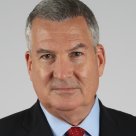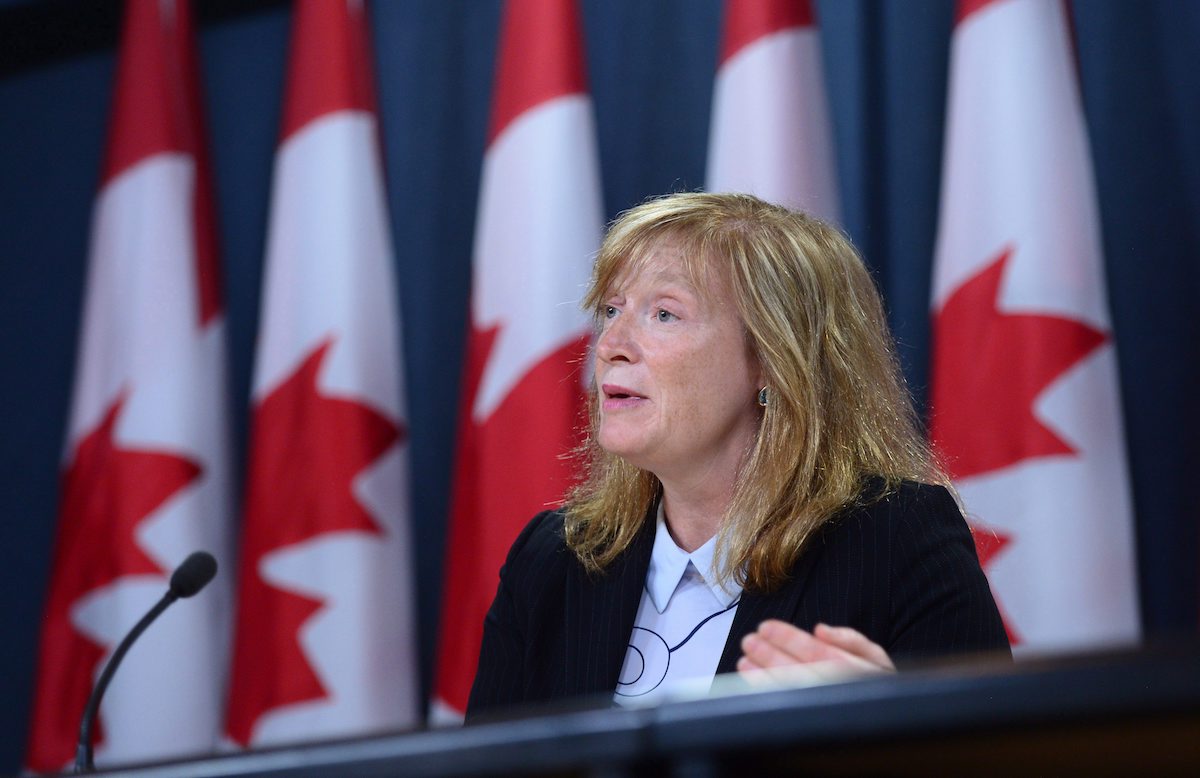
OTTAWA — The laughter from the opposition benches was enough to silence Prime Minister Justin Trudeau and force the intervention of House of Commons Speaker Geoff Regan.
It was Question Period on Tuesday and NDP Leader Thomas Mulcair had just asked Trudeau if the PM would support an NDP proposal to improve the process by which the government fills positions as mundane as a port authority board member to those as lofty as a chief justice of the Supreme Court.
Trudeau rose to reply. “Mr. Speaker, when we came to office, we did improve the nomination process ….”
And that’s when the laughter, loud and derisive, erupted from one end of the opposition benches to the other, Conservatives and New Democrats reacting to what, in their view, was a statement so far detached from reality as to surely be a grand joke.
For Trudeau’s claim to be true, he would have to have been able to point to a full slate of officers of Parliament, to a new RCMP commissioner , to new CEOs and chairpersons of Crown Corporations like the CBC, Canada Post, and Atomic Energy of Canada Ltd.
But he could not.
In fact, a review by Global News shows dozens of important leadership positions are vacant or about to be vacant. These are posts within Parliament, at Crown Corporations, and federal agencies and institutions that play vital roles in many aspects of Canadian life. Without permanent leaders, many of these institutions will struggle to fulfill their mandates from Parliament and, sooner rather than later, these vacancies will be the chief symptom of a dysfunctional government unable to deliver on its own agenda of change.
The most alarming vacancies are among the eight independent officers of Parliament. These officers are watchdogs, responsible to Parliament only and charged with keeping the executive branch — i.e. Trudeau and his cabinet — on its toes. But of the eight, five have retired, are about to retire, or would have moved on if only Trudeau had appointed a successor.
And it’s not as if these vacancies came upon the PMO without warning, catching them unawares. Officers of Parliament are appointed for set terms and anyone with a calendar can easily tell when a replacement will be needed.
And yet, the position of Chief Electoral Officer — one of those independent officers of Parliament — remains vacant more than a year after Marc Mayrand signalled his intention to move on.
Graham Fraser, the last Official Languages Commissioner, has long since departed and when Trudeau tried to replace him — a role which requires the incumbent to be an independent parliamentary watchdog ready to take on the prime minister — Trudeau chose a nominee who had just quit as an Ontario Liberal MPP, who had donated money to Trudeau’s leadership campaign, and who had two former employees working in the office of Trudeau’s Heritage Minister.
The opposition howled, naturally, that there was no way such a candidate could be perceived as independent and non-partisan but it was the Senate that finally did in the candidacy of Madeleine Meilleur for official languages commissioner. The independent senators whom Trudeau had appointed along with former Liberal senators like Serge Joyal were merciless in their grilling of Meilleur and it was clear they found her candidacy wholly unacceptable.
Meilleur was forced to withdraw.
Access to Information Commissioner Suzanne Legault is on her way out at the end of the month. She has done an exemplary job holding Parliament to account for the vital Access to Information Act but she will not seek to have her term extended precisely because she is not willing to submit to the nomination process Trudeau claims to have improved since the Liberals took office.
Ethics Commissioner Mary Dawson was set to retire July 8 but agreed to a request by the PMO to serve until the end of the year. This was her third six-month extension.
Her docket right now includes an investigation into Trudeau’s Christmas-time travel to the Bahamas Island owned by the Aga Khan to her successor. It’s up to a prime minister to choose her successor but, recognizing the impossible conflict-of-interest of choosing a new ethics commissioner might still be investigating his travel, Trudeau has said he will recuse himself from the choice and leave it to his Government House Leader Bardish Chagger. Apparently it has escaped Trudeau that Chagger, like all cabinet ministers, serve at Trudeau’s pleasure.
Lobbying Commissioner Karen Shepherd also agreed to serve until the end of this year — like Dawson, this was also her third six-month extension — because Trudeau has not found her successor.
“It calls into question the fact whether this government really wants people looking over them or not and that’s critically important to how this place functions,” said Conservative MP John Brassard.

The vacancy rate at Parliament’s eight independent watchdogs may be exceeded though by the vacancy rate in leadership roles at our law and order and national security institutions.
RCMP Commissioner Bob Paulson is set to retire at the end of this month and no replacement has been named.
The head of the Canadian Air Transport Authority, another crucial security agency, is an interim appointment and the Trudeau government had to extend the interim appointment of Michael Saunders in March.
The nominal head of Parliament Hill security is the Sergeant-At-Arms but that position has been vacant since January, 2015 when the last guy to hold that job, Kevin Vickers, was named Ambassador to Ireland.
And, of course, the Chief Justice of the Supreme Court, Beverly McLachlan, recently announced her intention to retire. That’s only the highest-profile vacancy. There were 53 other federal judicial vacancies across the country, including two on the Federal Court of Appeal and three on the Federal Court of Canada. Those numbers were current as of June 1 according to data published at the Office of the Commissioner for Federal Judicial Affairs Canada.
And let’s not forget that the second-in-commend of Canada’s Armed Forces, Vice Admiral Mark Norman, was suspended and stands accused leaking cabinet secrets.

Crown Corporations are also desperate for new CEOs, chairpersons, and boards of directors, without which most will have responding to the mandates given to them by Parliament.
For example, when board of directors of The Canadian Broadcasting Corporation meet, it can barely get the quorum required to transact business because of the vacant seats. Not only that, the government is overdue in naming a new chairperson and a new president for CBC.
There are others. New CEOs needed at Atomic Energy of Canada Ltd. Directors are needed at the Canadian Commercial Corporation, Export Development Canada and Canada Post.
While Trudeau’s PMO searches for executives to fill those leadership spots at Crown Corporations, he’s also trying to find an inaugural CEO and board of directors for the controversial Canada Infrastructure Bank.
Over at the Canadian Radio-Television and Telecommunications Commission — one of the most influential and important regulatory agencies of the government — chair Jean-Jacques Blais just announced he’s done. The broadcast and telecom industries regulated by the CRTC were still waiting for vice-chair and other commissioner vacancies to be filled.
The Canadian International Trade Tribunal — the key body that adjudicates international trade disputes — needs a chairperson. The First Nations Tax Commission needs commissioners and the First Nations Financial Management Board needs directors.
And then there’s the biggest and most important job of all that’s soon to be vacant: The Governor General.
Governor General David Johnston and his wife Sharon have bought a place in Manotick, Ont., south of Ottawa, and are keen to begin their retirement in September when Johnston’s term ends. Governors General do not serve for a fixed term but the modern tradition has been to think about a replacement after five years. Johnston, this September will have served seven years.
Given the vital role that the Governor General plays as the representative here of Canada’s head of state, Queen Elizabeth II, this is an appointment Trudeau can neither afford to be late with or get wrong.





Comments